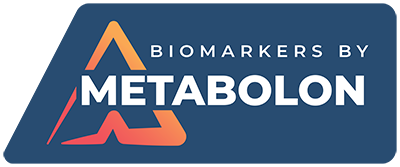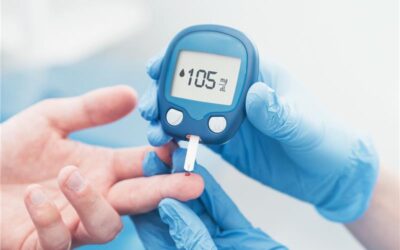Case Study

Gilead Sciences
Metabolon collaborates with Gilead Sciences to use metabolomics to discover less invasive diagnostic tools for NASH.

Rohit Loomba
Director, NAFLD Research Center, Professor of Medicine, University of California at San Diego
“While more study is needed, metabolomics may one day prove to outperform more invasive methods of assessing liver fibrosis, revealing opportunities to incorporate metabolomics into diagnostic tools.”

Rohit Loomba
Director, NAFLD Research Center, Professor of Medicine, University of California at San Diego
“While more study is needed, metabolomics may one day prove to outperform more invasive methods of assessing liver fibrosis, revealing opportunities to incorporate metabolomics into diagnostic tools.”
WATCH THE VIDEO

Metabolon collaborates with Gilead Sciences—a leading research-based biopharmaceutical company focused on the discovery, development, and commercialization of innovative medicines—to discover less invasive diagnostic tools for nonalcoholic steatohepatitis (NASH).
Gilead Sciences
Gilead Sciences is a biopharmaceutical company that has pursued and achieved breakthroughs in medicine for more than three decades with the goal of creating a healthier world. Gilead is committed to advancing innovative medicines to prevent and treat life-threatening diseases, including HIV, viral hepatitis, and cancer.
Rohit Loomba
Rohit Loomba, MD, MHSc, is an expert in the clinical management of chronic liver diseases. His research focuses on all aspects of nonalcoholic fatty liver disease including aging, epidemiology, genetic and environmental predisposition, natural history, and treatment of NASH.
The Challenge
NASH is a disease caused by the buildup of fat in the liver. Characterized by the presence of hepatic steatosis, inflammation, hepatocyte ballooning, and variable degrees of fibrosis in patients who do not consume excess alcohol, this life-threatening condition is estimated to affect up to 5% of the U.S. population.
Patients with advanced fibrosis from NASH are at risk of liver-related morbidity and mortality attributable to hepatic decomposition and hepatocellular carcinoma. NASH is the second leading indication for liver transplants in the U.S. and its burden is projected to increase 2-fold by 2030. A challenge of studying NASH is the lack of robust blood biomarkers.
Currently, NASH efficacy assessment is limited to imaging or biopsy, which not only can be costly and invasive but also impractical. In a study published in Gastroenterology, researchers sought to discover plasma biomarkers of response in a Phase II trial for NASH with a novel molecule (ACCi).
Dysfunctional metabolism lies at the center of NASH/NAFLD and includes lipid metabolism, cholesterol metabolism, inflammation, redox status, and mitochondrial function which can be assessed via metabolomic screening.
The team examined the safety and efficacy of GS-0976, an inhibitor of acetyl-coenzyme A carboxylase (ACC) in the liver, in a Phase II randomized, placebo-controlled trial of patients with NASH1. Patients were randomly assigned to groups given 20 mg of GS-0976, 5 mg of GS-0976, or the placebo daily for 12 weeks. Measures of hepatic steatosis and stiffness were evaluated and metabolomics analysis identified serum and plasma markers of fibrosis.
Results
Researchers discovered that a decrease of at least 30% from baseline in MRI-PDFF occurred in 48% of patients given 20 mg of GS-0976, 23% of patients given 5 mg of GS-0976, and 15% given the placebo.
These results indicate that in patients with NASH, 12-week administration of 20 mg of GS-0976 decreased hepatic steatosis and selected markers of fibrosis and liver biochemistry. The relative changes from baseline in ACC levels between responders and non-responders were significantly different at week 12 in the dose group. This information was used to develop a targeted panel of 22 acylcarnitines to predict response based on a single fasting blood sample.
The Solution
The results from this Phase II study of patients with NASH showed that 12-week therapy with 20 mg of GS-0976 demonstrated significant improvements in hepatic steatosis and markers of fibrosis. Decreases of multiple plasma acylcarnitine species in patients treated with GS-0976 with a PDFF response suggest that these metabolites could be surrogate markers of enhanced mitochondrial beta-oxidation during GS-0976 treatment. This panel of metabolites holds promise for use in identifying early biomarkers of imaging response.
As a global leader in metabolomics, Metabolon uses its metabolomics technology to provide a more holistic approach due to the ability to screen for thousands of metabolites in just one biological sample. The significance of this approach is apparent in the success experienced during Gilead’s utilization of metabolomics in assessing plasma biomarkers of response for NASH.
The Outcome
The role of metabolomics is instrumental in the identification and assessment of metabolites. Metabolites have been used throughout history as a method of assessing health, aiding in the understanding of tissue function throughout the 20th century, and are used in clinical settings where metabolites provide insight into an individual’s current health.
The results from this study of NASH patients clearly demonstrate how global metabolomics can be employed to identify and develop a panel of novel biomarkers of response that could be mechanistically linked to ACC inhibition and liver fat content.
While there continues to be a need for more studies and research, it is becoming clear that integrating metabolomics into diagnostic tools may be the way of the future, helping to alleviate the more invasive methods that are used today.
Metabolon helped researchers uncover potential biomarkers for NASH:
Our client developed a patient-friendly way to show the efficacy of potential therapies for NASH, a severe form of liver inflammation which has no FDA-approved treatments. A group of 22 potential blood biomarkers was developed which could replace the need for costly imaging or invasive liver biopsies in clinical trials for this disease.
References
- Loomba R, Kayali Z, Noureddin M, et al. GS-0976 Reduces Hepatic Steatosis and Fibrosis Markers in Patients With Nonalcoholic Fatty Liver Disease. Gastroenterology. 2018;155(5):1463-1473.e6. doi:10.1053/j.gastro.2018.07.027






